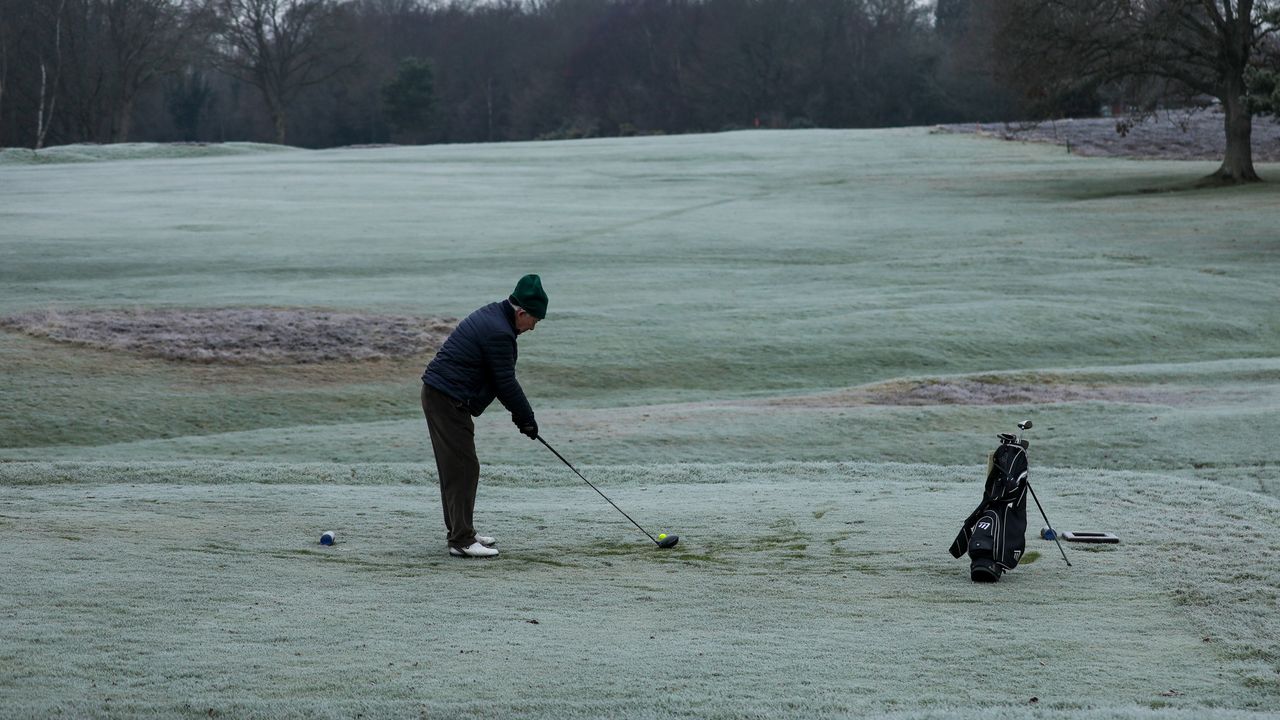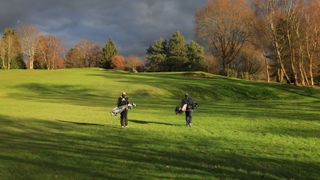Should Golf Clubs Organise More Competitive Golf Through The Winter?
Do golf clubs need to offer more competitions to members through the colder months or is it a time for social golf and working on your game?


As the weather turns and the mercury drops, many golfers in this country choose to put the clubs away until spring. But an increasing number continue to hit the fairways in the “off-season” and play winter golf. Do more golf clubs need to take note of this and start to offer a competitive winter programme?
Yes says Fergus Bisset
As the cost-of-living crisis continues to bite, we’re more inclined to consider our expenditures and whether we’re receiving value for money from them. The golf club membership subscription is a major outlay for most of us and one that could, oh so easily, be ditched. As such, clubs must look at every element of their offering to ensure they are providing value for money.
A competitive season that covers just seven months of the year doesn’t tally with that objective. Golf clubs should organise competitive golf through the winter. There’s no obligation for individual members to play competitively through the colder weather, there’s no obligation for them to play at all! But there should be opportunities for those who would like to remain competitive from November to March.
Traditionally, many clubs (particularly those in more northern parts of the country) have battened down the hatches at the first hint of winter and gone into hibernation. But changing weathers and changing expectations demand that more is provided for the money that continues to flow from members’ pockets into the club’s coffers.
As the climate warms, it’s often possible to play sensible golf on the full course for longer at the end of the season. But many clubs’ competitive calendars have closed by then. They should review them.
Admittedly, course condition, temporary greens or the use of mats sometimes make it impossible for rounds to be “handicap counting.” But this doesn’t prevent clubs from running winter leagues, weekend “sweepers” and various winter knockout tournaments. By organising competitive events through the winter, the bar takes more money, members have a chance to socialise, and the club generally remains lively.
If members wish to keep trying to play through the more challenging months, golf clubs owe it to them to keep trying to offer them events to take part in.
Get the Golf Monthly Newsletter
Subscribe to the Golf Monthly newsletter to stay up to date with all the latest tour news, equipment news, reviews, head-to-heads and buyer’s guides from our team of experienced experts.
No says Jeremy Ellwood

Or do we just stick to social golf?
The world turns in clearly defined seasons, doesn’t it? ‘A time to plant, a time to reap’ as the lyrics of The Byrds’ Turn! Turn! Turn! say.
And so it should be with golf. You plant in the off-season by investing time in your game in other ways – practice, lessons or whatever – then reap the benefits in the main season when it really counts.
I know that, for me at least, the European Tour lost something when it became pretty much a 52-week season rather than the old March to October affair, with its clear beginning and end. If we just trudge through the year doing pretty much the same thing all the time, things can get a little tiresome.
I’m not against winter knockouts, which generally (though not always!) have a slightly less intense feel. And for most of us, that will just mean one or two games as the majority of us depart these competitions in the earlier rounds. Even if we make it all the way it’s rarely more than four or five games at most clubs.
But as for Stablefords and medals throughout the winter, not for me, I’m afraid. Ground conditions can be difficult in terms of lies away from the short stuff, the greens lose their main-season coat and the weather is often cold, wet, windy or all three.
I’ve also been a member of a couple of clubs where the winter card was shorter but also harder, certainly off lower handicaps. You were often hitting the same clubs in due to lack of run, but, in old money, you lost a couple of shots on the SSS (shots I could ill afford to lose!). I’m not sure if it’s the same under WHS, but it was enough of a deterrent to steer me away from winter competitions at those two clubs.

Fergus is Golf Monthly's resident expert on the history of the game and has written extensively on that subject. He has also worked with Golf Monthly to produce a podcast series. Called 18 Majors: The Golf History Show it offers new and in-depth perspectives on some of the most important moments in golf's long history. You can find all the details about it here.
He is a golf obsessive and 1-handicapper. Growing up in the North East of Scotland, golf runs through his veins and his passion for the sport was bolstered during his time at St Andrews university studying history. He went on to earn a post graduate diploma from the London School of Journalism. Fergus has worked for Golf Monthly since 2004 and has written two books on the game; "Great Golf Debates" together with Jezz Ellwood of Golf Monthly and the history section of "The Ultimate Golf Book" together with Neil Tappin , also of Golf Monthly.
Fergus once shanked a ball from just over Granny Clark's Wynd on the 18th of the Old Course that struck the St Andrews Golf Club and rebounded into the Valley of Sin, from where he saved par. Who says there's no golfing god?
-
 Max Homa Splits With Caddie Joe Greiner
Max Homa Splits With Caddie Joe GreinerHoma and his long-time caddie Joe Greiner have parted ways after six PGA Tour victories together
By Elliott Heath Published
-
 Sandy Lyle Shared 3 Top Tips With Us Prior To Winning The Masters in 1988... And They Could Still Save You Shots 37 Years Later
Sandy Lyle Shared 3 Top Tips With Us Prior To Winning The Masters in 1988... And They Could Still Save You Shots 37 Years LaterThe 1988 Masters Champion shared his expert tips in the January 1988 issue of Golf Monthly, but they are still absolute gems for amateur golfers to this day...
By Barry Plummer Published